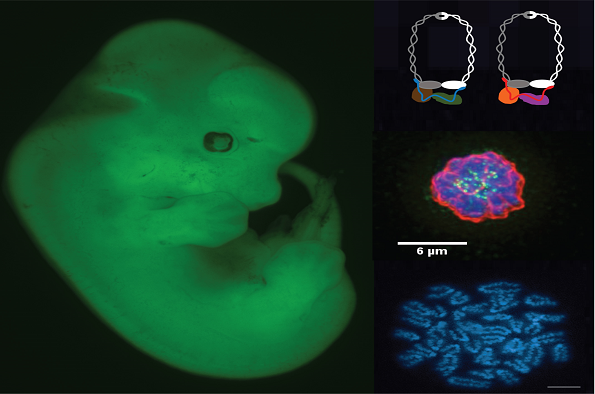
Developmental Regulation of Condensin Complex Expression, Composition and Function in Mice
- Urszula McClurg
- Suitable for: Staff and students with an interest in Genomes, Systems and Therapeutic Targeting
- Admission: Free
Add this event to my calendar
Click on "Create a calendar file" and your browser will download a .ics file for this event.
Microsoft Outlook: Download the file, double-click it to open it in Outlook, then click on "Save & Close" to save it to your calendar. If that doesn't work go into Outlook, click on the File tab, then on Open & Export, then Open Calendar. Select your .ics file then click on "Save & Close".
Google Calendar: download the file, then go into your calendar. On the left where it says "Other calendars" click on the arrow icon and then click on Import calendar. Click on Browse and select the .ics file, then click on Import.
Apple Calendar: The file may open automatically with an option to save it to your calendar. If not, download the file, then you can either drag it to Calendar or import the file by going to File >Import > Import and choosing the .ics file.
Mitotic chromosome condensation is driven by two condensin complexes, and has been studied extensively in cultured cells and in vitro. Whether the process by which mitotic chromosomes form changes during mammalian development is less well understood. Andrew previously showed that germline hypomorphic mutations in condensin subunits cause tissue-specific chromosome segregation failure in mice and humans, resulting in developmental diseases and cancer.
In this talk, Simon will describe his recent efforts to characterise the underlying mechanisms using new mouse models with fluorescent protein tags fused to NCAPH and NCAPH2: the rate limiting subunits of condensins I and II. These studies have uncovered previously unappreciated changes in the expression, composition and function of these essential architectural components of mitotic chromosomes during development. Simon proposes that the molecular requirements for efficient mitotic chromosome condensation and segregation can change over different mitotic cell cycles in multicellular organisms.
